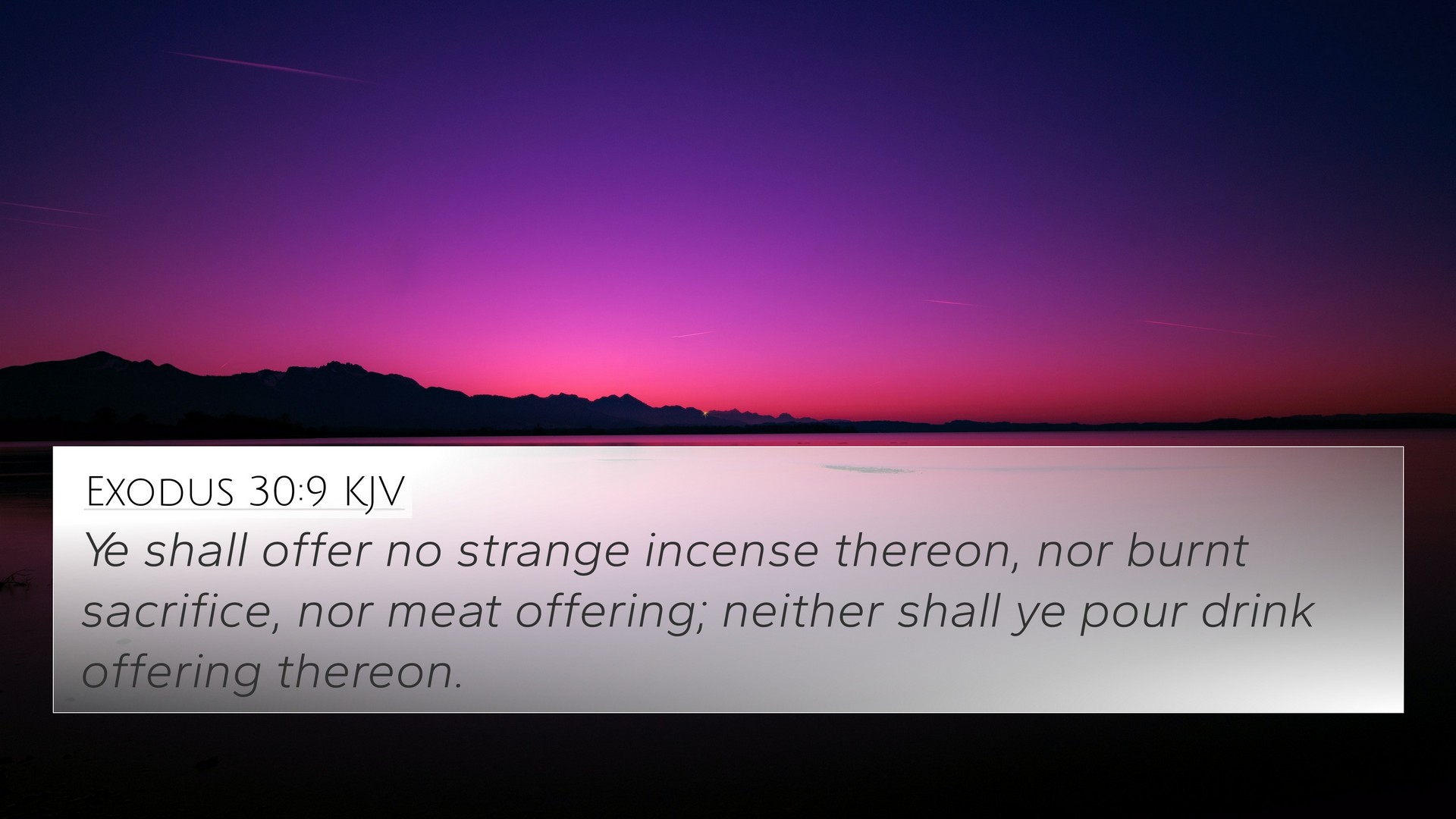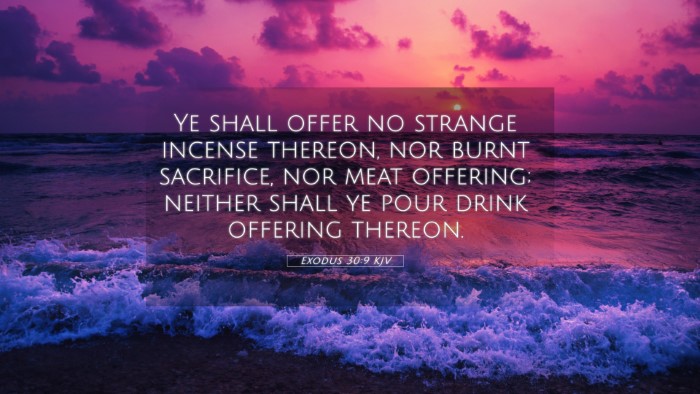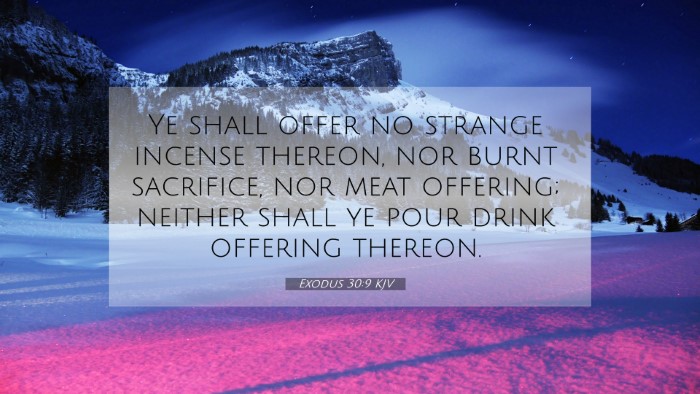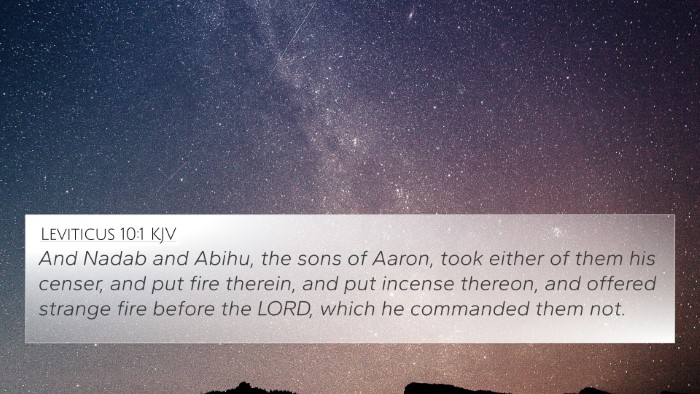Meaning and Interpretation of Exodus 30:9
Exodus 30:9 states, "You shall not offer unauthorized incense on it, or a burnt offering or a grain offering, and you shall not pour a drink offering on it." This verse delineates specific instructions regarding the Tabernacle's altar of incense, emphasizing the importance of adherence to divine commandments.
Contextual Background
The instructions provided in Exodus 30:9 fall within a larger narrative concerning the detailed regulations given to the Israelites for their worship practices. At the heart of these instructions is the desire for God's people to maintain holiness and integrity in their approach to worship.
Commentary Insights
-
Matthew Henry's Commentary:
Matthew Henry notes that the prohibition against unauthorized incense and offerings highlights God's concern for purity in worship. This underscores the idea that only what God prescribes is acceptable in His service.
-
Albert Barnes' Notes:
Barnes emphasizes the specificity of the command, indicating that the altar of incense requires a unique approach distinct from other types of offerings. He adds that any deviation from God's ordained method represents a significant breach of covenant fidelity.
-
Adam Clarke's Commentary:
Clarke interprets this verse as a reminder of the seriousness of worship and how it must align with God's standards rather than human preferences. He points out that the nature of the offerings is not merely ritualistic but fundamentally tied to righteousness before God.
Thematic Bible Verse Connections
Exodus 30:9 presents several significant connections with other biblical passages that also emphasize proper worship and the significance of following God's commands.
-
Leviticus 10:1-3:
This passage recounts the story of Nadab and Abihu, who offered unauthorized fire before the Lord and faced dire consequences. This serves as a direct warning about the seriousness of proper worship.
-
Proverbs 28:9:
The proverb declares that if one turns away from hearing the law, their prayer is an abomination, reinforcing the need for alignment with God's commands in worship.
-
John 4:24:
This New Testament verse emphasizes the call to worship God in spirit and truth, connecting the integrity of worship with genuine acknowledgment of God’s standards.
-
Romans 12:1:
This verse calls believers to present their bodies as living sacrifices, holy and acceptable to God. It highlights that worship extends beyond rituals into the entirety of one's life.
-
Hebrews 12:28-29:
In these verses, the author speaks of offering acceptable worship with reverence and awe in consideration of God’s holiness, echoing the sentiments found in Exodus 30:9.
-
Malachi 1:14:
Here, God rebukes the offerings made by the people, asserting that He is a great King and must be treated as such in their acts of worship, tying again to the theme of holiness and reverence.
-
Colossians 3:23-24:
These verses encourage believers to do everything heartily unto the Lord, connecting the proper mindset of worship with the spirit behind what is offered, rather than the mere act alone.
Tools for Understanding and Cross-Referencing
To deepen one's study of Exodus 30:9 and its implications, consider utilizing various Bible study tools and methods:
- Bible Concordance: A reference tool that helps in finding specific verses and their connections.
- Bible Cross-Reference Guide: A resource that links related passages across the scriptures.
- Cross-Reference Bible Study: Techniques that identify and explore relevant verses that speak on similar themes or topics.
- Bible Reference Resources: These include commentaries and analytical tools that provide insights into verses.
Conclusion
Exodus 30:9 serves as a crucial reminder of the importance of adhering to God's commands in all forms of worship. By understanding its context and cross-referencing related scriptures, believers can grasp the broader biblical narrative about worship, holiness, and the nature of a proper relationship with God.



